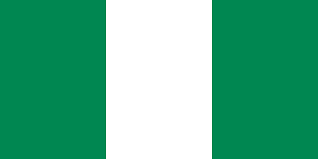
In the vast ocean of global economics, a storm is brewing, and it goes by the name of debt distress. Nigeria, too, finds itself grappling with mounting debt burdens amidst a challenging economic landscape. The country’s staggering debt profile, which currently stands at over N80 trillion, carries significant implications for its economy. Analysis of data from the Debt Management Office (DMO) reveals that Nigeria owes a total of $4.46 billion, equivalent to N2.51 trillion, to five countries: France, China, Japan, India, and Germany.
Unsurprisingly, China, through its lending institution, the Exim Bank of China, holds the largest share of Nigeria’s debt. According to reports from the Debt Management Office, Nigeria’s borrowings from these five countries increased by 206.96 percent from $1.58 billion in June 2015 to $4.85 billion by September 2022.
Stakeholders are warning that Nigeria’s economy is on the verge of collapse if immediate action is not taken. The soaring debt burden means that a significant portion of future earnings will be allocated to debt servicing, leaving limited resources for critical sectors like education, healthcare, and infrastructure. This diversion hampers socio-economic development, exacerbates existing challenges, and raises concerns about the sustainability of the borrowing spree.
This fiscal vulnerability places Nigeria in a precarious position, vulnerable to external shocks and market fluctuations that could lead to default. The consequences are far-reaching, impacting the overall health of the economy and hindering its recovery. Foreign investment becomes hesitant, impeding economic growth and reducing development opportunities.
Economic analysts emphasize the urgent need for the federal government to shift its focus from asset financing to equity financing as a way to escape financial stress. Relying solely on future earnings is considered inadequate to cope with the government’s escalating expenditure, underscoring the necessity for alternative financing strategies.
To navigate the storm of debt distress, Nigeria must adopt a range of strategic measures tailored to its unique circumstances. Strengthening debt management practices is crucial, ensuring transparency, rigorous risk assessment, and sustainable borrowing. By charting a responsible course, Nigeria can regain control of its debt trajectory and pave the way for a brighter future.
Additionally, Nigeria must fortify its financial regulatory framework to weather the storm. Strengthening prudential norms, surveillance mechanisms, and risk management systems will steer the nation away from excessive risk-taking and speculative borrowing. Through these efforts, Nigeria can establish a solid financial foundation to withstand future challenges.
Moreover, the federal government must explore avenues for debt restructuring and engage in dialogue with international financial institutions. These efforts can alleviate the burden of debt servicing and provide breathing room for much-needed investments. Simultaneously, enhancing revenue mobilization through effective tax administration and diversifying revenue sources will strengthen Nigeria’s fiscal position and reduce reliance on future earnings alone.
Diversification of the economy is another critical strategy. Nigeria’s heavy dependence on oil revenues exposes it to price fluctuations and external shocks. By promoting economic diversification, encouraging investments in non-oil sectors, and fostering an environment conducive to private sector growth, Nigeria can build a more resilient and sustainable economy.
Furthermore, fostering transparency and accountability in public financial management is essential. Strengthening governance frameworks, enhancing budgetary processes, and combating corruption will help restore investor confidence and attract much-needed foreign direct investment to support economic development.
Lastly, Nigeria needs to foster responsible lending practices in partnership with major creditors, including China. This involves promoting transparency, sustainability, and long-term development objectives. By forging responsible lending partnerships, Nigeria can build a foundation for mutual growth and stability.
Divinefavour Lawal ✍️


